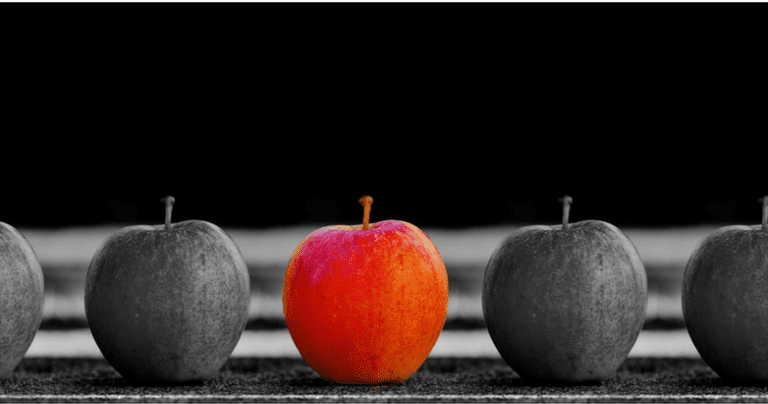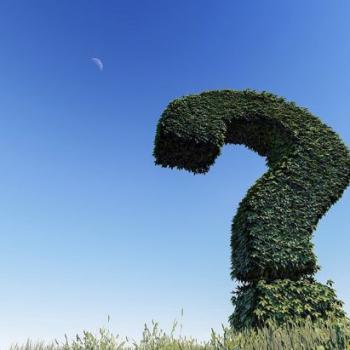
In an age of pluralism and diversity, this is difficult to say, but, by my estimates, every celebration of diversity creates subtle divisions.
Here is my thinking.
Reminded of Differences
When I acknowledge that you come from a different culture, a different background, and a different race, and we celebrate that, then divisions remain.
Every time I see you I am reminded of how different we are.
Reminded of Likenesses
We could do it differently. We could honor each other’s culture, background, and race but then move on to explore and celebrate similarities.
Afterwards, parallels would remain.
Every time we’d see each other, we’d be reminded of our likenesses.
What Color Are the Apples?
For example, when you saw the picture that accompanies this column, what did you notice first, the fact that all the fruits were apples or that one apple was in color and the others were grey?
Both observations are correct, but one interpretation focuses on the ‘appleness’ while the other focuses on the differences.
Sure, if we had apples of all colors, we could celebrate their differences and walk away with the idea that they are all more different than we had originally thought, or, we could celebrate the fact that they all are apples that happen to be of different colors.
The outcomes would be quite different.
Lasting Harmony
Honoring diversity was an important pluralistic a starting point. However, I think that the only way to achieve lasting harmony is to celebrate similarities.
For instance, the Golden Rule (which is found in some form in all the religions) encourages me to love my neighbor as myself. The more I see myself in my neighbor, i.e. the more we celebrate similarities, the easier this becomes.
Think About It
If you have committed yourself to diversity as a focal point, I understand that.
It’s how I used to see the world.
All I ask is that you think about this new approach.
Could you honor diversity while making an effort to celebrate similarities?
I am not saying that we should force people into a mold or try to tell them that they are all the same, but, if we want to achieve lasting harmony, we have to remind each other that we are more alike than we think we are.
What we focus on becomes our reality. From that perspective, we can either see ourselves as eternally divided or as members of the same human race.
It’s our choice.
Gudjon Bergmann
Author & Interfaith Minister
Picture: Pexels.com CC0 License












